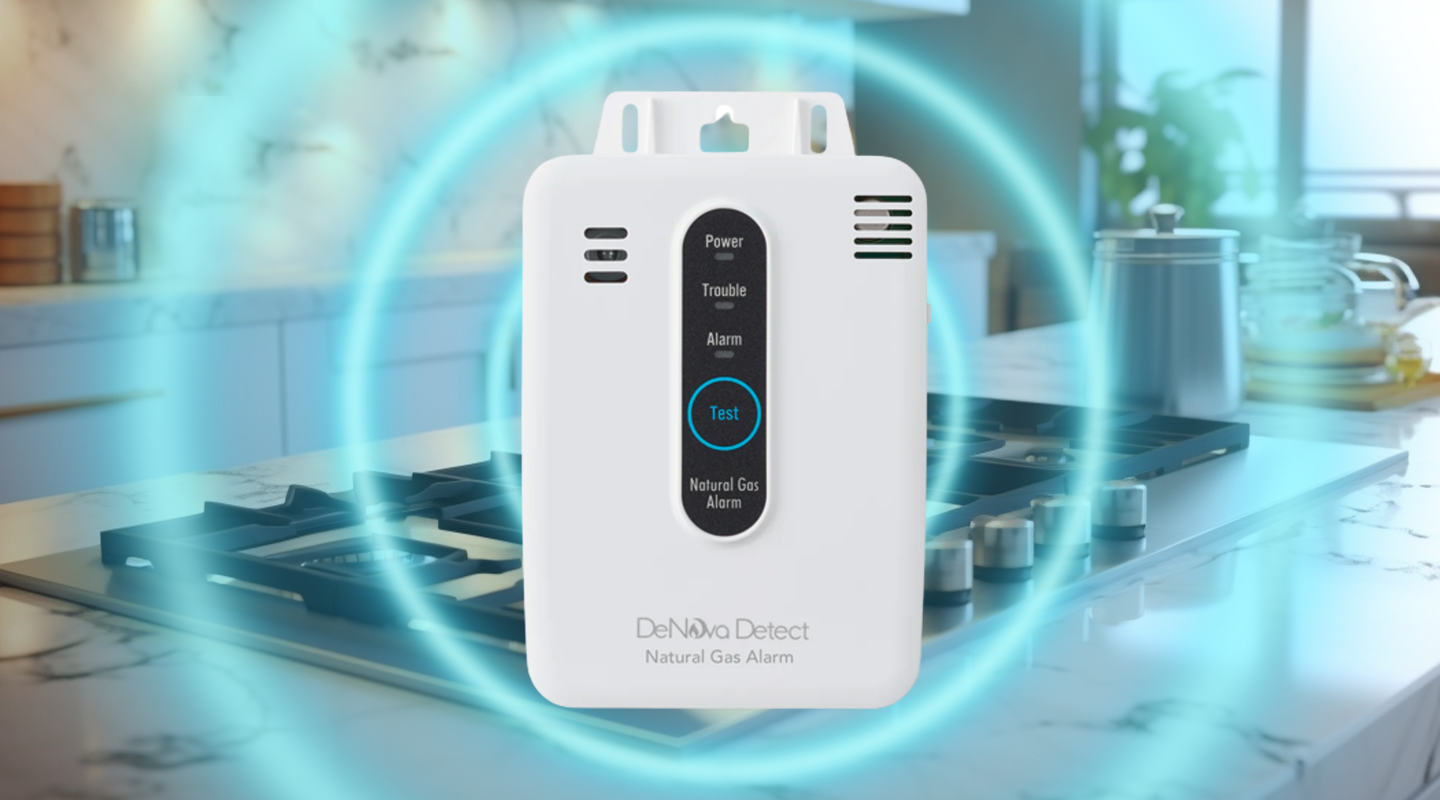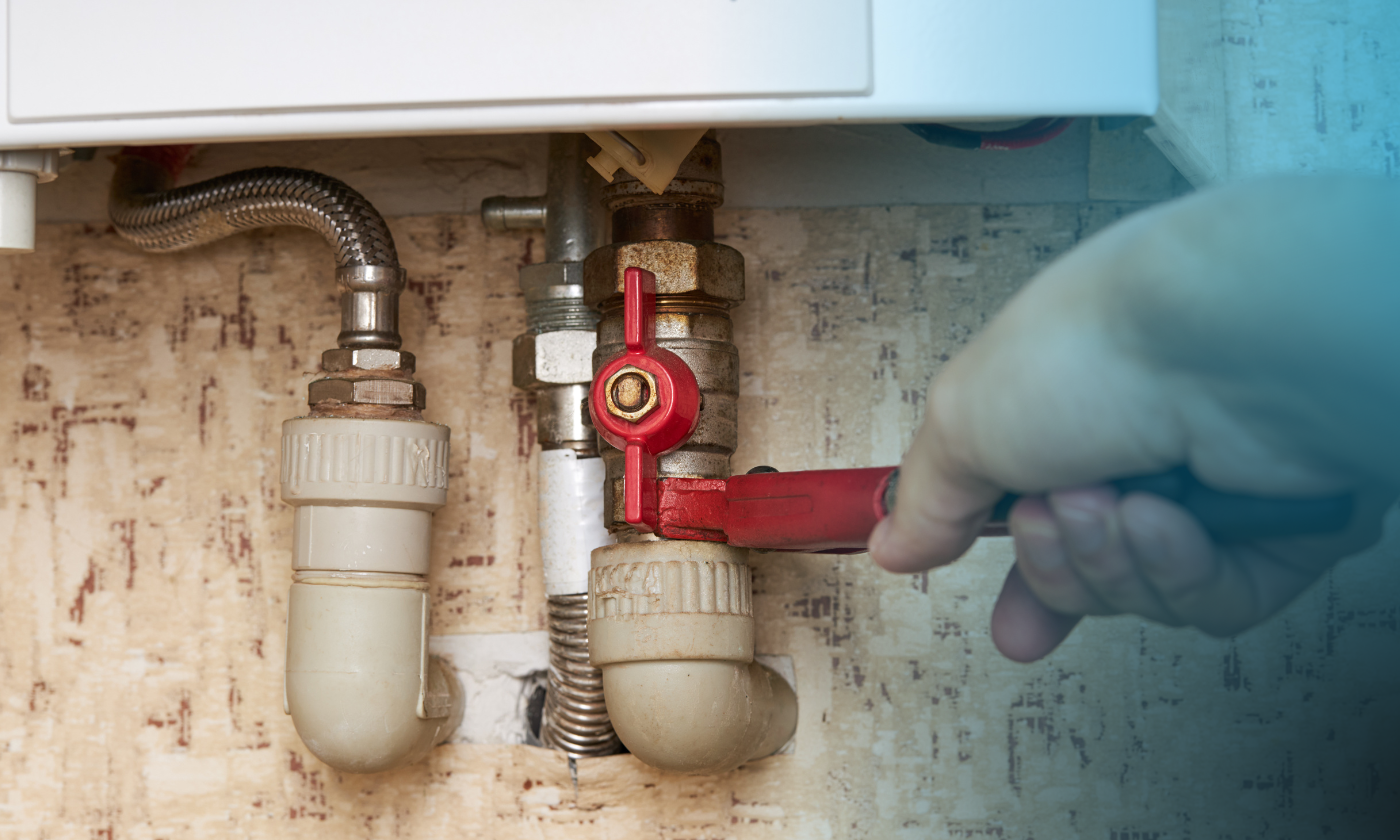Natural gas leak detectors can save lives, so choosing the right one is important for your home. According to the National Fire Protection Association (NFPA), approximately 4,200 home fires per year occur due to the ignition of natural gas, causing about 40 deaths and 140 injuries yearly.
Natural gas detectors are an inexpensive investment in your and your loved ones’ safety against natural gas and can prevent tragedy from striking.
There are several factors to consider when choosing a natural gas detector, but it starts with figuring out your needs first. Once you know what you need from your natural gas alarm, you can filter through features, including the detector's sensitivity, how easy the detector is to install, and the types of elements the detector can identify.
Everyone wants to feel safe and secure. By doing your research, you can choose the best natural gas leak detector with confidence and assurance.
What to Know Before Purchasing
Choosing the best natural gas leak detector requires considering a few factors that can impact its accuracy and effectiveness.
Type of Gas: Some detectors are designed specifically for detecting natural gas, while others are suitable for detecting carbon monoxide or propane. One detector will not identify another type of gas unless it explicitly states that it will. For example, don’t buy a natural gas leak detector thinking it will sense carbon monoxide, unless it specifically states it will sense both natural gas and carbon monoxide. Be weary, as sometimes manufacturers may take advantage of consumers because most won’t take a serious look at the details. For example, two-in-one combo units may claim to sense both natural gas and propane. However, that’s simply impossible at this time, given the need for the alarms to be installed in two opposite locations (a natural gas alarm must be installed near the ceiling because natural gas is lighter than air versus a liquid propane detector should be mounted near the floor because propane is heavier than air. There are subtle, but very important nuisance to note before purchasing. The manufacturer should clearly state which gas or gases their detectors will sense, but you should still pay close attention to any false combo claims or inaccuracies. Educate yourself on the basics. Learn more about the different detectors and the difference between carbon monoxide and natural gas.
Sensitivity: You should check whether the sensors have a high enough sensitivity to the lower explosion limits (LEL). The greater the sensitivity, the faster you can identify low levels of natural gas. Some devices also use a semiconductor sensor, while others have an electrochemical sensor. If a gas leak does occur, some devices can send data through an app to your smartphone via WiFi or Bluetooth to let you monitor the situation even if you’re not there. DeNova Detect offers a 10% LEL which is also the NFPA 715 Standard versus most competitors who offer a 20-25% LEL, alerting you to gas leaks much later when it could be more dangerous.
ETL or UL-Listed: ETL or UL Listed: Ensure that your gas leak detector functions correctly and reflects a valid, accredited testing agency mark such as Intertek/ETL or UL/Underwriters Laboratories. Their logo, or mark, indicates the alarm has been certified to meet the required UL 1484 safety standards. If your alarm is a combination natural gas + carbon monoxide alarm, it should meet or exceed both the UL1484 and the UL 2034 standards.
Power Source: Detectors can be powered by a battery pack, plug-in, or hardwired into your home's electrical system. There are many benefits of battery-powered alarms, but if you decide to go electric, ensure your detector has a battery backup in case of a power outage.
- For battery-powered natural gas alarms, consider the battery life and test the alarm regularly. Natural gas leak detectors also come with an expiration date (usually five to ten years,) so consider replacing them beforehand.
Smart Home Integration: Wi-Fi or Bluetooth connectivity or syncing with other smart home devices can send data through an app to your smartphone. If a gas leak does occur, these features can provide you with real-time alerts and monitor your wifi gas detector even if you’re not there. Make your smart home smarter.
After finding the ideal natural gas detector, you can breathe a little easier with your newfound protection. Like all devices, taking care of your natural gas leak detector means not skimping on maintenance. Keep your detectors in good working order by:
- Checking the batteries: Natural gas detectors often come with backup batteries in case of power outages. Testing and replacing the batteries regularly ensures the detector is working. In the case of DeNova Detect natural gas alarms, batteries are offered for the entire life-time of the alarm, so need to replace.
- Bump testing: Bump testing simply checks if a detector reads to the expected tolerance and initiates the correct alarm signals.
- Following the manufacturer's instructions: It’s always best to follow the manufacturer's instructions on how to test your specific natural gas detector.
DeNova Detect Natural Gas Alarms
When it comes to natural gas safety, dependable, accurate natural gas leak detectors are vital. At New Cosmos, we always prioritize your safety with guaranteed products that will always have your back. Our DeNova Detect natural gas alarms ensure your safety with superior patented sensor technology to alert you of a leak 11 minutes faster than any other natural gas detector on the market.
DeNova Detect is the only residential battery-powered wireless natural gas alarm in the U.S. with a guaranteed 10-year battery and product service life. These natural gas detectors provide fast and accurate methane gas detection without risking false alarms caused by harsh household chemicals.
Every second matters, especially when protecting people and their property. Acquire 24/7 security from a threat in your home you may not even be aware of yourself. Sit back and relax while your home natural gas detector does most of the work for you.
Interested in a DeNova Detect natural gas detector? Learn more about our alarm features and benefits on our website or contact us at support@denovadetect.com.





Leave a comment
This site is protected by hCaptcha and the hCaptcha Privacy Policy and Terms of Service apply.